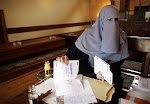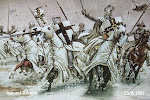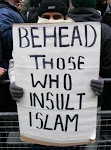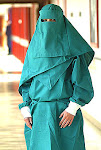"Secularlism foreign to Islam," by Peter Johnston for Yale Daily News, September 26:
The distinction between the City of God and the City of Man laid the foundation for the Catholic Church’s cession of temporal power to the emerging European state, which in turn placed limits upon the Church’s temporal response to the Reformation...
Now it may be true, from the point of view of Christianity, that the modern understanding of secularism has taken the distinction between the City of God and the City of Man too far. Thus the continuous debate in America on the proper role of religion in the public sphere. But at the very least, Christians have a history that requires them to grapple with secularism as something of their own kin. Secularism cannot be completely rejected as “other,” as an imposition of a rival faith.
The situation is much different for Muslims. Islamic theory describes a proper ordering of the civil community. Secularism is as foreign to Islamic theory as is Sharia law to Americans. Thus it was surprising when Prime Minister Blair, at his talk last weekend, suggested a parallel between tensions relating to Ireland in Great Britain and the tensions in the Middle East. Tensions in the Middle East are only partially caused by internal sectarian conflict. They are also caused, and perhaps to a much larger extent, by the prospect of globalization.
Globalization does not simply mean the development of third-world countries, the spread of efficient communication and transportation systems, or the increasing mobility of capital. Rather, globalization also entails the progress of Western ideals, secularism foremost among them. While it is possible, therefore, that globalization will strengthen Christian faith, it is not possible for it to strengthen Muslim faith.
The muslims do not want people to live in a civilized mannor. They prefer the seventh century.
12 years ago






















